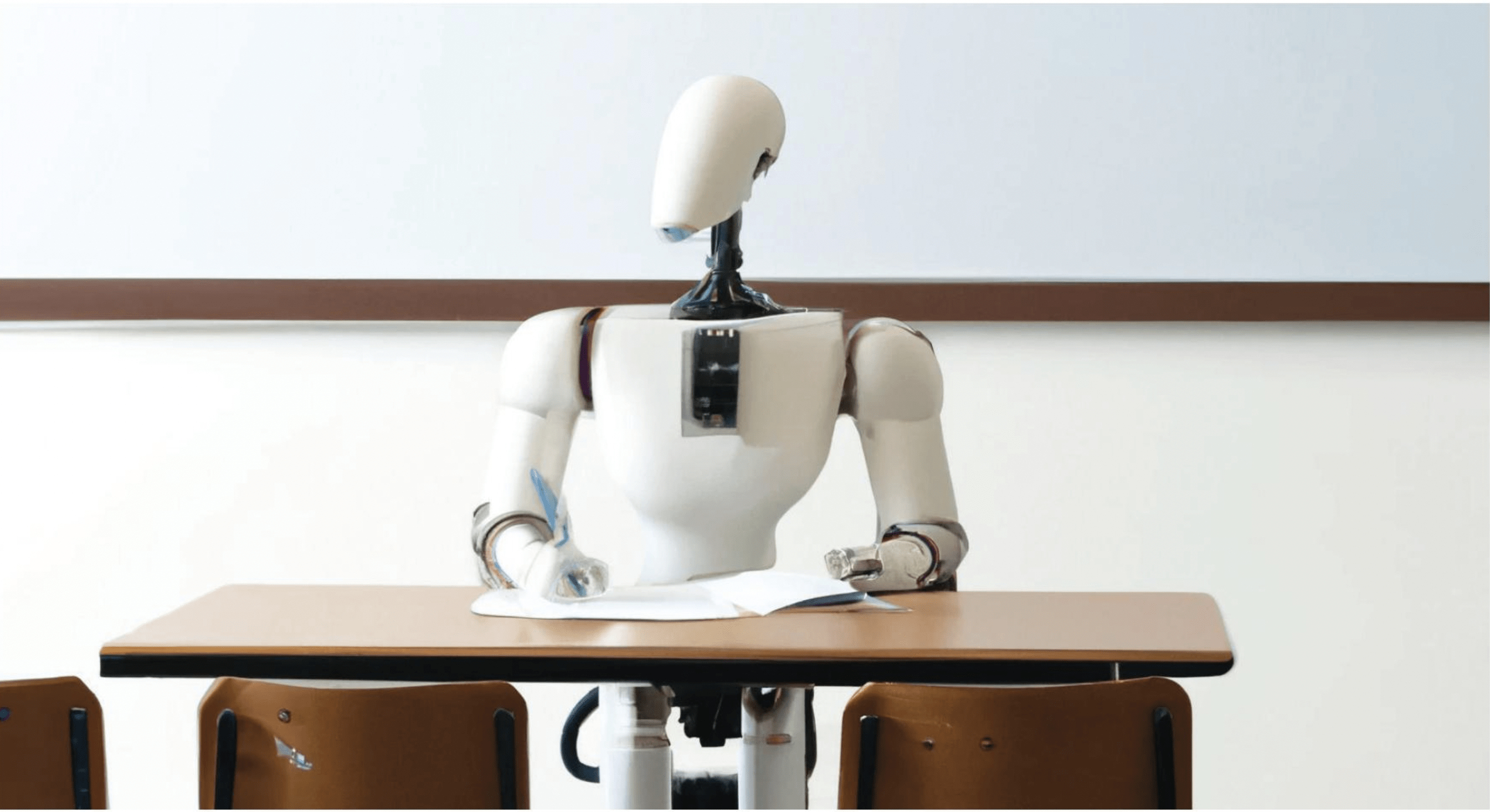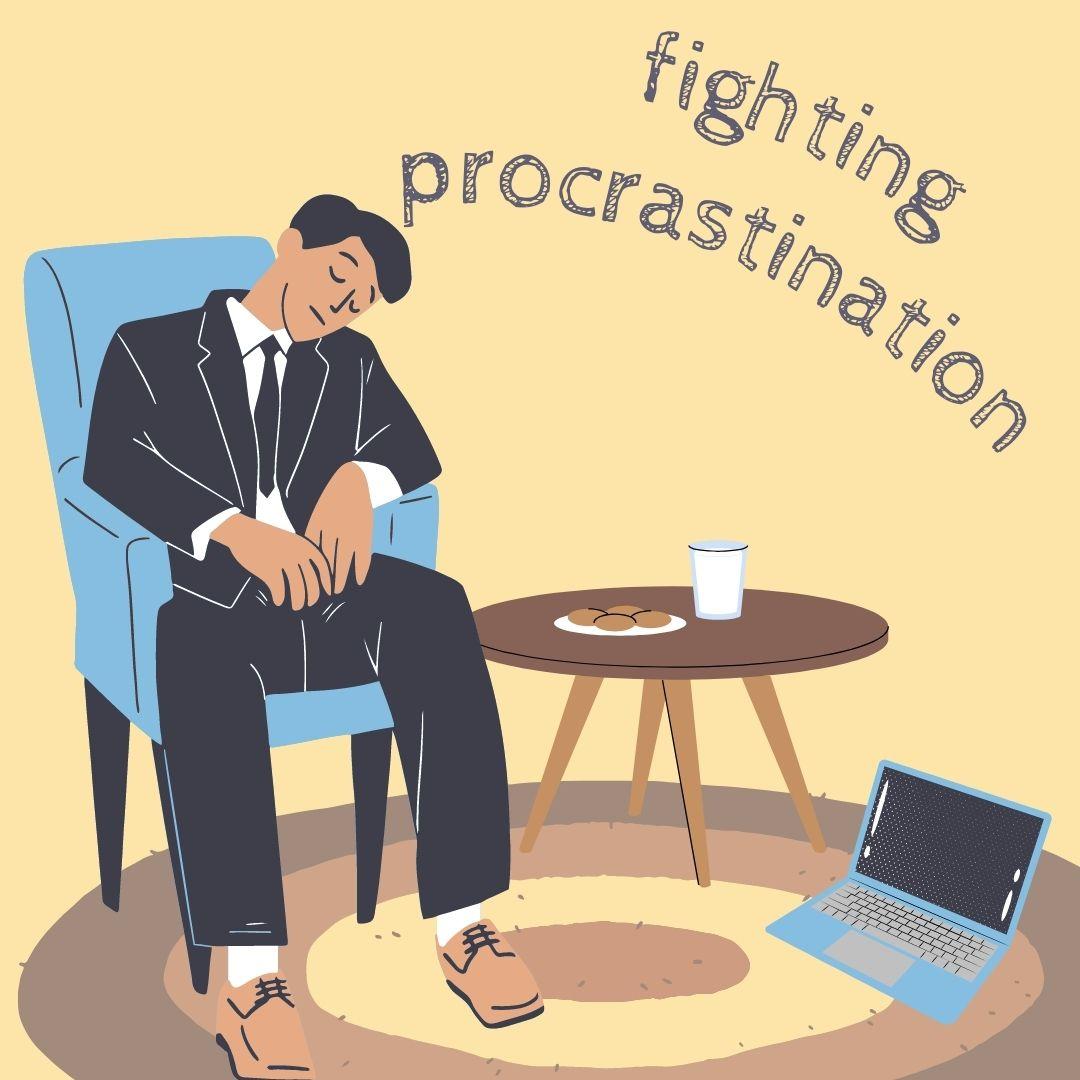As the world becomes increasingly digital, the line between human and machine communication becomes blurred. Enter ChatGPT, a cutting-edge language model that can understand and respond to natural language with uncanny accuracy.
The previous paragraph — written by ChatGPT — only begins to describe the language capabilities of OpenAI’s newest creation.
ChatGPT describes itself as “a large language model” that is “trained using a massive amount of data to generate human-like text.”
Launched on Nov. 30, 2022, the service has quickly become well-known for its range of possible outputs — the AI can produce language translation, text summarization, debugging and question answering, ChatGPT said.
The phenomenon extends to the Country Day campus. In a Jan. 10 Octagon poll of the high school, 39 of 54 respondents said they have used the service.
Those uses ranged from an exploration of the AI’s potential to AI-assisted cheating on academic assignments.
Exploring ChatGPT
Sophomore Ryan Pirie has used ChatGPT to help with his programming projects.
“I was programming an AI that follows a similar structure as ChatGPT, so I was testing to see what they had accomplished and what they had done,” Pirie said.
It has helped him uncover some of the limitations of AI.
“It is designed to make answers seem correct. It isn’t really trying to be right, it’s trying to look correct,” he said.
It’s especially a problem when it comes to using ChatGPT as a source of information.
“It’s pulling from the internet, and the internet isn’t always right,” Pirie said. “There is a system it is trying to engage in, so often you can get horrible responses.”
Reinforcement learning is the AI type used by ChatGPT.
“If it does something good, it gets a reward similar to a child getting a cookie. Often it’s trying to beat the system that’s been set up, so that’s the reason for faulty information,” Pirie said.
Nevertheless, the system has its benefits.
“If you have a large piece of text and you don’t quite understand it, like if a sixth grader was trying to use it, you can simplify it to a sixth-grade reading level,” Pirie said.
As he continues to work on his AI program, he plans to return to ChatGPT and other similar AI services.
Computer science teacher Charles Farris, who goes by Mr. Charles, has also been testing ChatGPT’s limits.
“I haven’t used it for anything I’ve been producing, more just been experimenting with it and seeing what answers it gives and data it provides,” he said.
Even asking the same question twice can yield different results, he added.
Charles has high hopes for the AI’s potential. He examined ChatGPT to check out the possibility for beneficial or harmful community building, as well as data interpretation and responses.
“There is a lot of potential for good uses, and evil uses,” Charles said.
Using the service has been both “intriguing” and “inspiring” due to the power of ChatGPT’s data analysis and production. It is given few instructions before producing a large amount of information.
“I think the potential for good lies in the sheer amount of data it can process and redistribute, so I feel like it gives a really holistic snapshot of the state of the internet,” he said.
However, Charles said that those data-analysis methods could also be used maliciously.
Because ChatGPT reflects the internet, it can also reflect various prejudices contained in its data set, from sexism to racism to homophobia.
Ultimately, Charles said ChatGPT’s net effect on society lies with those who use it.
“If you are reading this and find yourself using ChatGPT, I hope that you find a way to use it for good,” he said.
Educational Uses of AI
One area that ChatGPT has the potential to affect, for better or worse, is academics.
Senior Savanna Karmue has recently started using ChatGPT for her Advanced Topics Anatomy and Physiology class, which requires her to research various diseases, illnesses and body parts. She uses that to complete her study guide for the course. Karume describes ChatGPT as an “online doctor” and uses it as a search engine.
Karume cross-references ChatGPT’s information with online Google searches to gather all the necessary information for her assignments. She then utilizes this information to complete her assignments in her own words.
“It has a lot of information, and it is really able to consolidate all that information into one search, which is really helpful and helps me complete my assignments faster,” she said.
ChatGPT comes with downsides as well.
“Some of it is inaccurate. Obviously, there are limits to AI,” Karume said.
ChatGPT also crashes regularly as a result of the increase in demand and spike in usage.
Senior Ryan Paul also uses ChatGPT to verify his answers for math and science classes.
When he’s assigned problem sets in Advanced Placement Physics C, the textbook only provides answers for even-numbered questions.
“So, to see if I did it right, I plug in the question into ChatGPT, and it tells me how to do it,” he said.
It’s especially useful when Paul is unsure of how to complete the question, he said.
ChatGPT also provides an explanation of how it reaches its solution so that Paul can use its response as a starting point.
However, it’s far from a flawless experience.
The AI frequently makes mistakes, he said. On one AP Physics C multiple-choice question he had to disregard ChatGPT entirely.
“I was doing this question on momentum, and I was a little confused on how to do it, so I plugged it into ChatGPT,” he said. “It gave me an answer but the answer there was not an answer choice on the worksheet.”
He had to correct the AI by informing the AI of its mistake and finally received the correct answer after several iterations.
Paul also uses ChatGPT to assist with English writing, but has run into the same limitations of the AI’s knowledge.
“I found it particularly helpful with understanding where I need to improve my thesis,” he said.
For a recent Advanced Topics English Literature essay, he fed the AI a first draft of his thesis.
“My thesis was about struggle, so originally, I just wrote ‘the struggle of people,’ or ‘the struggle,’” he said.
“ChatGPT was like, ‘that’s good, but it needs to be better.’”
The AI suggested he discuss the struggle of people in relation to their history, or their struggle to find identity, suggestions that pushed Paul to include more nuance within his thesis.
However, ChatGPT is “below mediocre” when it comes to writing longer pieces, he said.
“It’s definitely not the writing that I’m used to writing, and I don’t think it’s the level I’m at or anyone else in our class.”
Due to these drawbacks, Paul plans to only use ChatGPT for limited, specific situations.
“You can definitely not rely on it fully,” he said. “You always need to be a little worried.”
English teacher Jane Bauman expresses her conflicting opinion regarding students’ usage of AI platforms for academic use.
Bauman recently read a Dec. 6, 2022 article in The Atlantic about the emergence of ChatGPT, which changed her perspective on the service.
“I felt the Earth shift underneath me that day,” she said.
“It made me question everything I teach, and the value of what we do. But then I thought about it for a while and realized that it, in fact, makes what we do more valuable.”
Bauman feels that by learning to read, think critically and write, a person can analyze what is written in ChatGPT and see flaws in the reasoning and “the flat character of the writing.”
“So actually, it is going to help give us new reasons for insisting that critical reading, writing and thinking skills are super important,” Bauman said.
Bauman has not encountered any students using ChatGP, as there are distinctive errors that students tend to make in their writing.
“One of the strong points of Country Day’s English department is that students develop a strong personal voice in their writing,” she said. “So if I don’t see somebody’s personal voice in their writing, that might make me suspicious.”
Bauman is considering altering her curriculum by having students write by hand more often to establish a baseline for their personal voice and style.
In addition to ChatGPT’s lack of originality, imagination and voice, the service also poses a significant misinformation risk.
“Another reason students have to learn to use their critical thinking skills is to be able to evaluate writing or information that they see on social media or other online platforms that is generated by AI,” Bauman said.
Academic Dishonesty
The most glaring concern relating to ChatGPT is the risk of academic dishonesty.
English teacher Jason Hinojosa has “mixed feelings” about ChatGPT’s use.
“The clutching of the pearls right now in the English teacher community is about cheating, and that concerns me somewhat, but I feel like it’s just the latest fashion of cheating,” he said.
Although ChatGPT provides a sophisticated, easy way to plagiarize assignments, Hinojosa said the burden of academic dishonesty falls upon the student.
One such student, a sophomore who requested anonymity, has used the AI service on “busy work,” finding the convenience and time-saving aspect of ChatGPT was too powerful not to ignore.
“You feel guilty using it but at the same time it’s stupid not to,” the sophomore said.
“You just type a sentence and you don’t have to do anything except wait for 10 seconds. Otherwise, it would take you half an hour.”
The sophomore has used ChatGPT for a variety of tasks, primarily busy work from human geography and the sophomore project.
For the paper portion of the sophomore project, students need to complete notecards paraphrasing quotations relevant to their research.
“Normally, it would take me 10 minutes per notecard,” the sophomore said. “It was near the end, so I was a little behind, and I needed to get the notecards done. I used ChatGPT and it took less than a minute.”
So far, these AI-written submissions have gone undetected.
“I’ve gotten A’s on everything,” the sophomore said. “I’ve actually not even got a single point docked off because teachers can’t know if you’re using ChatGPT or not.”
However, AI relies on specific input. In order to generate an output, a user must type in a prompt. While ChatGPT is generally strong in generating summaries, the sophomore said, finding specific details can be more difficult.
Often, it requires asking follow-up questions and rating the answers generated.
A senior who also requested anonymity used ChatGPT on an extra credit assignment.
“Everything was on topic. Everything could be passable for a human, and that’s interesting,” the senior said.
While the potential of the AI is clear, the anonymous senior does not plan to use ChatGPT again, saying it would be “a bridge too far” to hand in an AI-written essay.
“Especially in a small environment like Country Day, teachers become acquainted with your voice as a writer,” the senior said.
“It still is clear that a human isn’t writing it,” the senior said. “It’s not the old collection of buzzwords that AIs would spit out, but still clearly not a student’s voice. It’s too polished.”
While there are ways to detect ChatGPT’s influence on a written assignment, it is a subjective judgment.
Hinojosa is unsure about his ability to detect artificially-generated text.
“I think my detectors are pretty good, and there are certain grammatical tells,” he said. “Occasionally, there will be a cognitive stutter-step in what I’ve read.”
Even so, he said he would not be surprised if an AI piece slipped by him.
Despite the new risks, Hinojosa does not plan to make significant changes to his curriculum. While small fixes, such as implementing more hand-written work, might solve the immediate problem, he said cheating is a perennial issue.
“I’ve caught a number of students cheating in the past. I’m sure many more than I’ve caught have gotten away with it, and I think I have to make peace with that,” he said.
“As an educator, it breaks my heart a bit, because I love what I teach, and I hope my students will engage with it, but there’s only so much that can be done without driving yourself mad.”
— By Samhita Kumar and Eesha Dhawan
Originally published in the Feb. 8 edition of The Octagon.




I am a multi-lingual writer and I have been using Chatgpt for the past month. Frankly, it has amazed me beyond words. To create a challenge, I began asking questions by “combining” the three languages I know. In other words, I wrote one question by mixing French, English, and Farsi. I also requested a trilingual answer. It easily understood what I asked and answered me exactly how I had requested! This tool is clearly going to eliminate so many jobs and create so many new ones. It’s both amazing and worrisome.